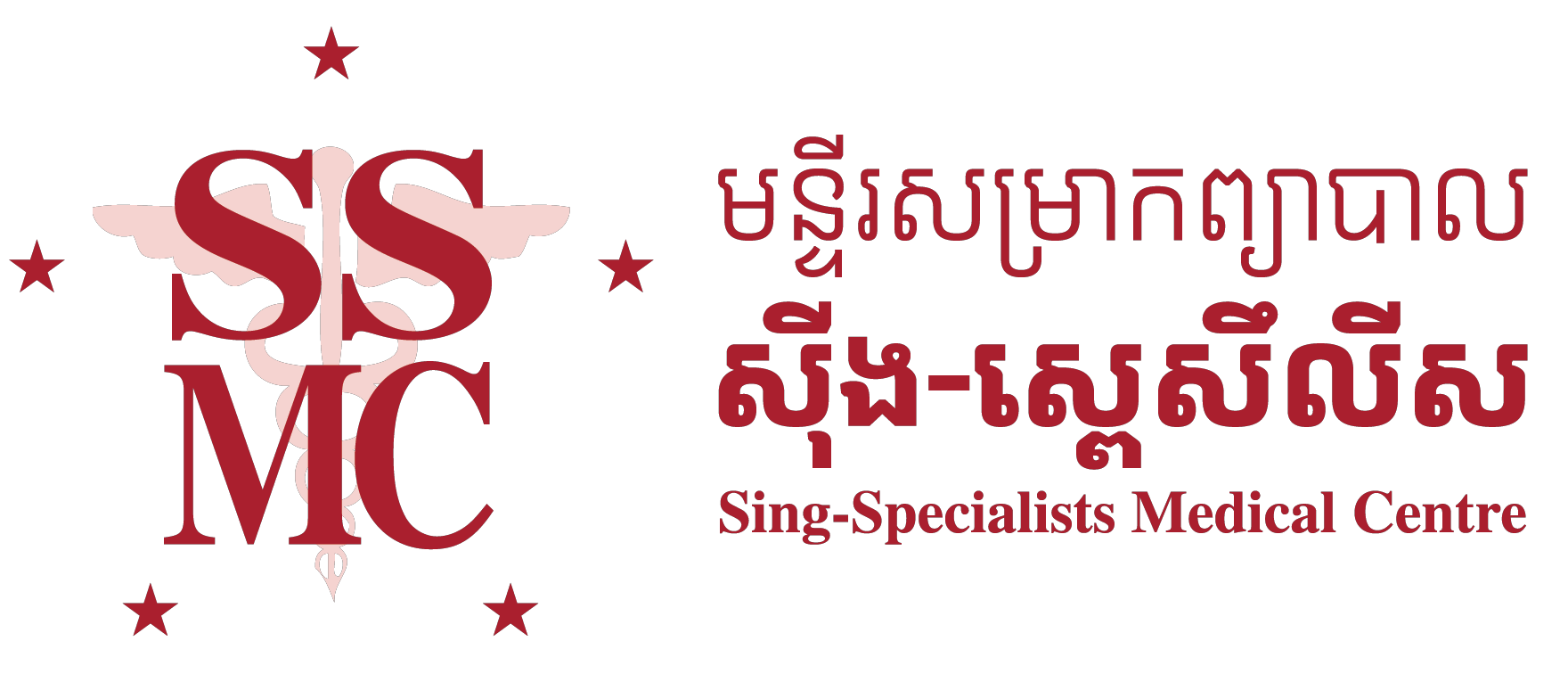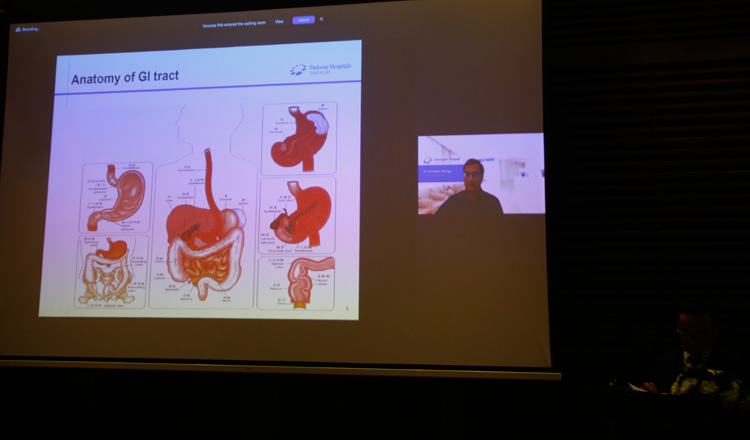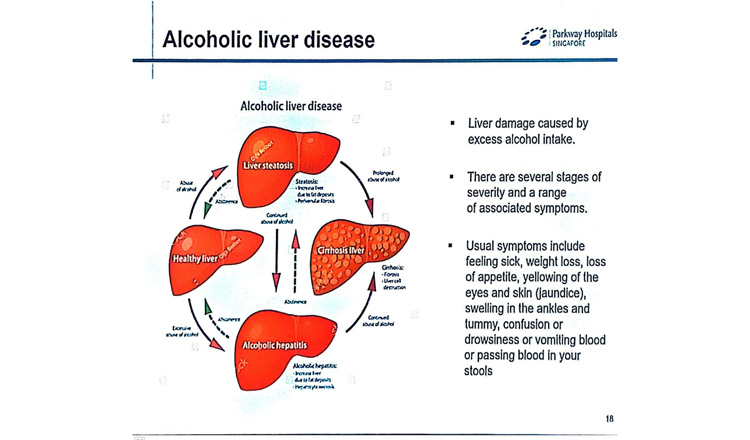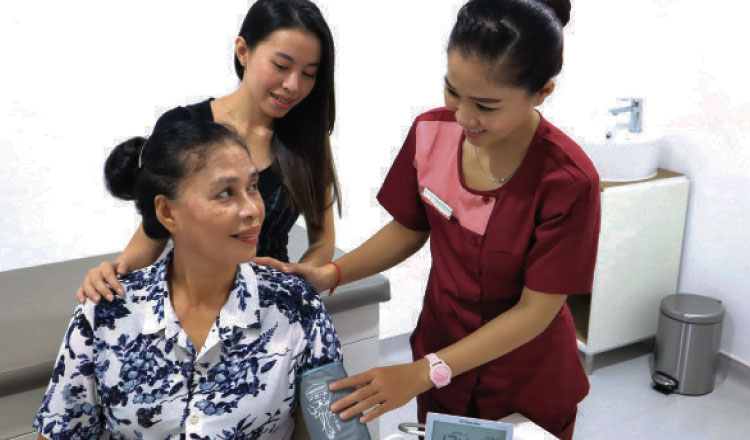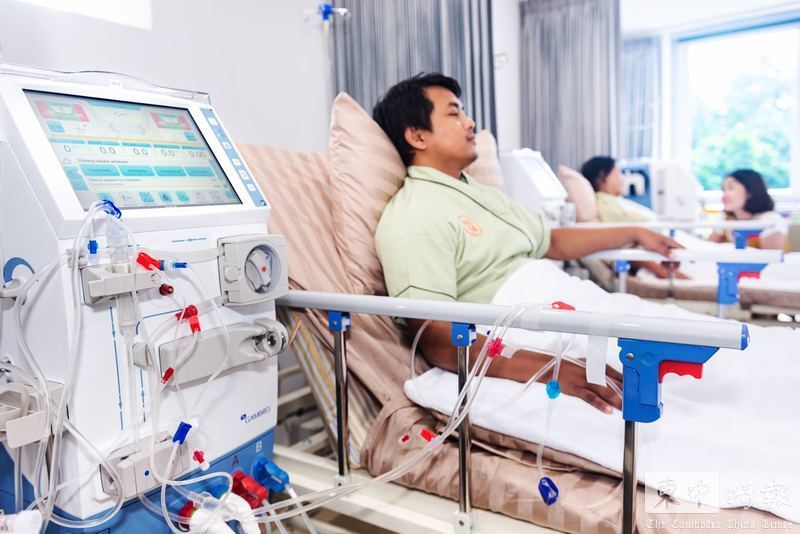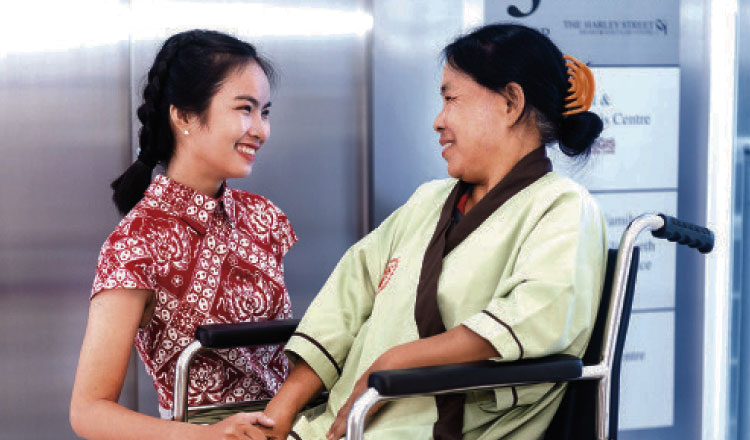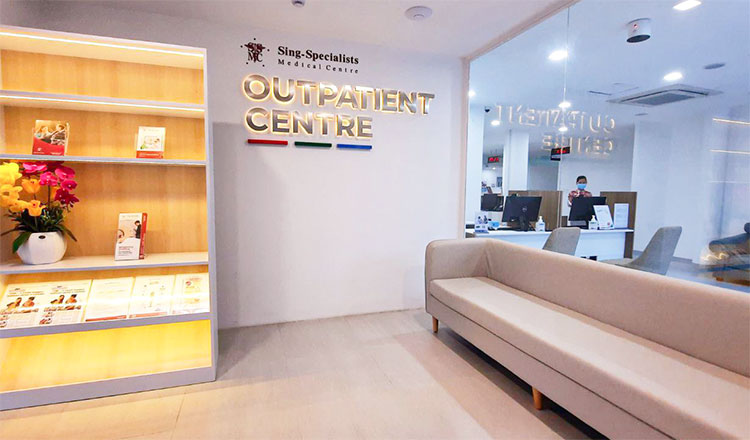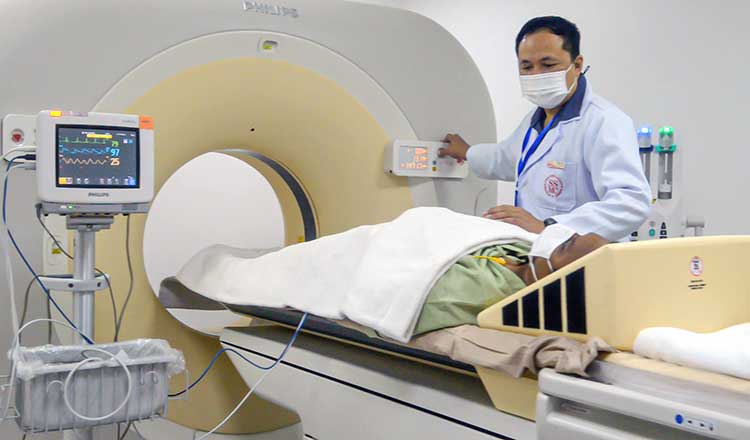Health experts have raised alarm over the rising incidences of diabetes among adults in Cambodia with 4.4 percent of the 16.8 million population suffering from it.
What is of great concern is the fact that out of the estimated 740,460 patients, 40 percent of them may eventually develop impaired renal function.
This was highlighted at the online webinar health talk-themed “ Healthy Kidneys for a Healthy Life” organised jointly by Parkway Hospital Singapore group and Sing Specialists Medical Center on December 19.
The objective of the health talk was to create awareness among Cambodians on the need for them to manage their hypertension and diabetes to prevent kidney problems, which if unchecked could lead to Chronic Kidney Disease (CKD).
Nephrologist Dr. Angeline Goh Ting Hui, who was a guest speaker, said diabetes nephropathy is a common complication related to Type 1 and Type 2 diabetes and this happens when a person has poorly controlled diabetes.
“If diabetes is not well controlled it can lead to kidney damage and also cause high blood pressure,” she said, adding that the prevalence of kidney and diabetes among the people was becoming common among the communities.
Dr. Goh warned: “CKD is a silent killer. One in 10 people or 10 percent of the population actually have CKD without even being aware of it. This is because high blood pressure and diabetes are the common causes of kidney disease.
She pointed out that in 1997 the prevalence of diabetes in the world population was about 135 million people, and in 2010 it doubled to more than 285 million, which is 6.4 percent of the world population. In 2030 it has been projected that 7.8 percent (around 439 million), or close to 10 percent of the world’s population, will be diabetic.
Stating that this non-communicable disease is worrying, Dr. Goh again warned that CKD is an important risk factor for cardiovascular disease.
She said the public must understand that having healthy kidneys is also a step towards having a healthy heart.
“Stay healthy and free of diabetes to prevent having complications related to the disease such as CKD, high blood pressure, fluid retention, anaemia, and weak bones,” said Dr. Goh adding that these health issues would eventually translate to people having a lower quality of life.
“To have a good quality life, you must have good kidney function. Having a good kidney also means maintaining overall good health,” said Dr. Goh who is a specialist at the Mount Elizabeth hospital in Singapore and sub-specializes in kidney transplantation.
Ministry of Health spokeswoman Or Vandine said: “Like many other countries, non-communicable diseases (NCD), including hypertension, diabetes, and kidney troubles, have become a public health concern because of unhealthy diets, physical inactivity as well as tobacco and alcohol use.”
Vandine said that the Ministry of Health, with support from the World Health Organization, developed a national multi-sector action plan creating various measures to address and prevent Cambodians from such diseases as diabetes and CKD. The measures include: identifying risk factors, increasing tobacco taxes, providing education on a healthy diet and exercise, focusing on prevention and early treatment, and working closely with development partners.
With more than 20 years of experience in clinical medicine, Dr. Goh is also an expert in the use of immunosuppressants and has spent over a decade caring for kidney transplant recipients and donors.
Having cared for more than 400 prevalent kidney transplant recipients, Dr. Goh said she understands the need for regular monitoring to keep transplant recipients in good health.
Under her capable hands, more than 100 new living donor kidney transplants have been performed in the National University Centre for Organ Transplantation from 2013 to 2019.
At the talk, Dr. Goh shared in detail about CKD, its causes, preventive measures, and effective treatments while highlighting that 20 percent of men and 25 percent of women between the age of 65 and 74 have CKD.
She has developed her own program to monitor and advise patients on how best to maintain good kidney function to ensure good overall health. She strongly believes that good kidney function is a prerequisite for a healthy life.
Dr Goh was a former assistant professor in the Yong Loo Lin School of Medicine, NUS, and external lecturer for the School of Health Sciences, Nanyang Polytechnic. She has been actively involved in research in kidney transplantation and has presented in regional and international conferences.
The event was initially scheduled to take place on November 14, at Rosewood hotel, but was postponed to December 19 due to the COVID-19 pandemic. The online webinar event was attended by members of the general public, members of the business chambers, and priority banking customers.
The SSMC Renal Dialysis Clinic was established by Dr. Stephen Chew and Dr. Ho Chee Kun from Aegis Medical Care, who have both been engaged in the care of patients with kidney diseases for more than 25 years and manage 11 dialysis clinics in Singapore.
SSMC is a first-rate medical facility in the downtown central district of Phnom Penh and has been at the heart of the provision of top-notch medical care, boosting reliable quality healthcare services, promising an exceptional and hands-on patient care experience.
